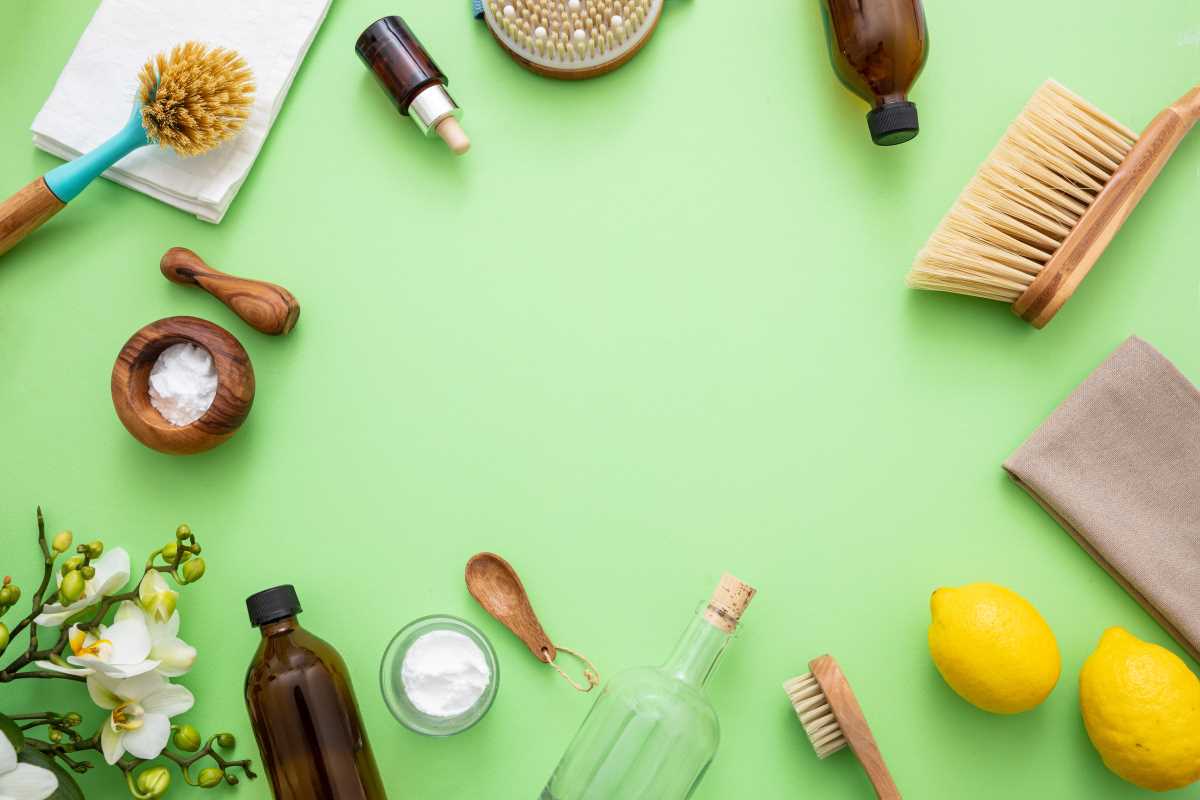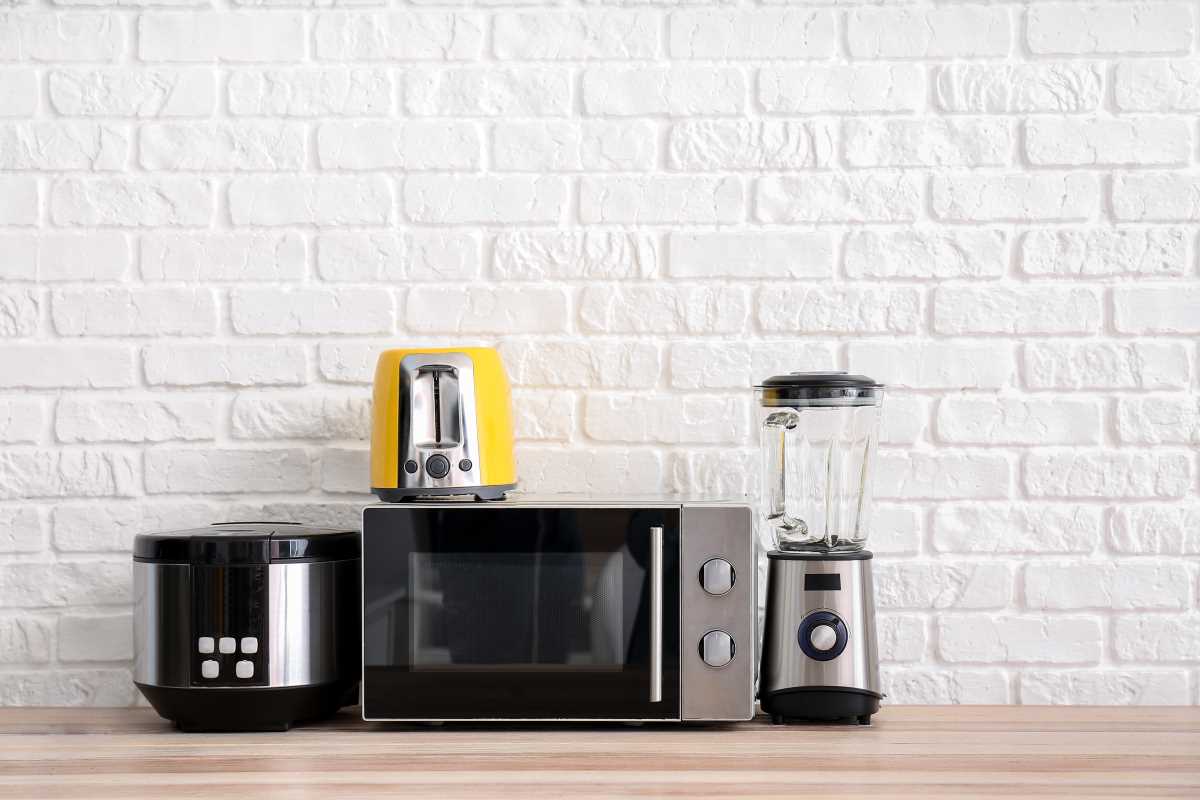We encounter countless chemicals daily, often without realizing it. From the products we use in our homes to the food we consume, these chemicals can impact our health and the environment. Fortunately, making small, intentional swaps can significantly reduce our chemical exposure, leading to a healthier and more sustainable lifestyle. Here are ten practical swaps to help you transition to a more chemical-free life.
1. Cleaning Supplies: Vinegar and Baking Soda
Household cleaners are often packed with harsh chemicals like ammonia, bleach, and artificial fragrances that can be tough on the respiratory system and irritating to the skin. While these cleaners may be effective at removing dirt and bacteria, they aren’t the only solution. Natural ingredients like vinegar and baking soda can serve as highly effective replacements. Vinegar’s acidity gives it powerful antibacterial properties, making it great for kitchen surfaces, windows, and bathrooms. Baking soda, on the other hand, acts as a gentle abrasive that can help lift stains and neutralize odors. These two together create a non-toxic powerhouse for tackling grime and keeping surfaces fresh.
Vinegar and baking soda not only eliminate the need for synthetic chemicals but also save money since they’re inexpensive and versatile. For example, baking soda can be sprinkled on carpets before vacuuming to absorb odors, while a vinegar spray can be used on windows for a streak-free shine. You can even add a few drops of essential oil, like lemon or tea tree, to vinegar solutions to enhance the cleaning power and leave a fresh scent.
2. Personal Care: Organic Coconut Oil
Many personal care products contain synthetic ingredients, including parabens and phthalates, which can disrupt hormone function and potentially increase the risk of certain health issues. Coconut oil is a fantastic, multi-purpose alternative that’s widely available, cost-effective, and completely natural. Use it as a moisturizer, makeup remover, or even as a shaving cream replacement. Its high fatty acid content helps lock in moisture, making it ideal for dry skin and hair.
When switching to coconut oil, you may also notice a reduction in the number of products you need overall. Rather than having separate moisturizers for face, body, and hair, coconut oil can simplify your routine. Just be mindful of using it sparingly if you have acne-prone skin, as it can be too rich for some skin types. Always choose organic, cold-pressed coconut oil for the purest and most effective results.
3. Household Air Fresheners: Essential Oils
Air fresheners and scented candles may smell delightful, but they often emit volatile organic compounds (VOCs) and other chemicals that contribute to indoor air pollution. Essential oils, on the other hand, are plant-based and offer a wide range of therapeutic benefits. Lavender, for instance, promotes relaxation, while eucalyptus can clear congestion and refresh the air.
For an effective swap, invest in a diffuser that gently disperses essential oils throughout your home. You can experiment with combinations like citrus and mint or lavender and chamomile to find a blend that suits your mood. Additionally, you can make a quick air freshening spray by mixing a few drops of essential oil with water in a spray bottle, perfect for spritzing around the house without introducing synthetic chemicals.
4. Food Storage: Glass Containers
Plastic containers are notorious for leaching chemicals, such as BPA and phthalates, especially when exposed to heat. Glass containers are a safer, more sustainable option that is perfect for food storage. Not only are they non-toxic, but they’re also less likely to hold onto odors, stains, or food residues.
Glass containers are particularly versatile—they’re microwave, oven, and dishwasher safe, making them ideal for meal prep and leftovers. Plus, storing food in transparent containers makes it easier to keep track of what you have in the fridge, potentially reducing food waste. For those who enjoy a rustic, zero-waste aesthetic, mason jars are a popular choice that can double as lunch containers, smoothie cups, or dry ingredient storage.
5. Processed Foods: Whole Foods
Processed foods are often high in preservatives, artificial colorings, and flavor enhancers that can affect our health over time. Replacing these foods with whole foods like fruits, vegetables, whole grains, and lean proteins can significantly reduce exposure to unnecessary chemicals. Whole foods also come with a host of vitamins, minerals, and fiber, helping your body function at its best.
To make this swap more practical, try shopping for local, in-season produce, and dedicate time to meal prep. Preparing meals from scratch allows you to control what goes into your food and avoid hidden ingredients like added sugars and artificial flavors. If going fully organic isn’t an option, focus on buying organic versions of the "Dirty Dozen"—the fruits and vegetables most likely to have pesticide residues—to further reduce exposure.
6. Skincare: Natural Oils and Butters
Our skin absorbs much of what we put on it, which is why it’s wise to choose products without harmful chemicals. Natural oils and butters, such as jojoba, argan, almond oil, shea, and cocoa butter, are deeply nourishing and packed with essential nutrients. These ingredients offer hydration, improve skin elasticity, and leave skin looking radiant without added chemicals or synthetic preservatives.
Switching to natural oils and butters can be a luxurious experience as well. Shea and cocoa butter, for instance, offer a rich, creamy texture that’s perfect for moisturizing dry areas like elbows, knees, and feet. Jojoba and argan oils are lightweight and easily absorbed, making them ideal for facial skincare. Many of these oils are also suitable for DIY skincare recipes, like lip balms and body scrubs.
7. Laundry Detergent: Soap Nuts or Eco-Friendly Detergents
Traditional laundry detergents often contain phosphates, synthetic dyes, and artificial fragrances that can irritate sensitive skin and impact the environment. Soap nuts are a great alternative for those looking to minimize chemicals in laundry routines. These dried fruit shells contain saponin, a natural soap that cleans clothes effectively.
If soap nuts aren’t readily available, you can also opt for eco-friendly detergents made without phosphates, fragrances, or dyes. Look for biodegradable formulas, which are gentler on the skin and won’t harm aquatic ecosystems. Eco-friendly detergents also tend to come in recyclable or compostable packaging, reducing plastic waste.
8. Cookware: Stainless Steel and Cast Iron
Switching out non-stick cookware for stainless steel or cast iron is a wise investment in your kitchen and health. Non-stick pans often contain perfluorooctanoic acid (PFOA), which can release harmful fumes when overheated. Stainless steel is versatile and durable, while cast iron, when seasoned correctly, offers natural non-stick properties without synthetic coatings.
In addition to being chemical-free, cast iron and stainless steel cookware can last for decades with proper care, making them eco-friendly choices. Cast iron pans even add a small amount of iron to your food, benefiting those who need to boost their iron intake naturally. To maintain a non-stick surface with cast iron, coat it with a small amount of oil after each use.
9. Toothpaste: Natural Alternatives
Conventional toothpaste often contains ingredients like fluoride, artificial colors, and sweeteners. While fluoride has its benefits, many people prefer to avoid it due to concerns about overexposure. Natural toothpaste with simple ingredients like baking soda, coconut oil, and essential oils is an effective alternative.
If you enjoy DIY projects, making your own toothpaste can be simple and satisfying. A basic recipe involves mixing coconut oil with baking soda and adding a few drops of peppermint oil for a fresh taste. This homemade option allows you to control exactly what goes into your toothpaste, avoiding unnecessary chemicals altogether.
10. Pest Control: Diatomaceous Earth and Natural Remedies
Chemical pesticides may quickly eliminate pests, but they can pose risks to people, pets, and the environment. Diatomaceous earth, made from fossilized algae, is a safe and natural pest control option. Its fine powder dehydrates insects like ants and roaches, effectively managing household pests without toxic chemicals.
For a chemical-free way to keep mosquitoes and other pests at bay, essential oils such as citronella, peppermint, and tea tree oil work well as repellents. You can make your own spray by mixing these oils with water, a safe and effective way to protect your home from pests without resorting to chemicals.
Switching to a more chemical-free lifestyle doesn't have to be more trouble than it's worth. Start by making small, manageable changes, focusing on one area at a time. Over time, these swaps can lead to significant improvements in health and environmental impact. By choosing natural alternatives, you not only reduce your chemical exposure but also support sustainable practices that benefit the planet. Embrace these swaps as part of a holistic approach to health and wellness, and enjoy the peace of mind that comes with making informed, conscious choices.
 (Image via
(Image via





